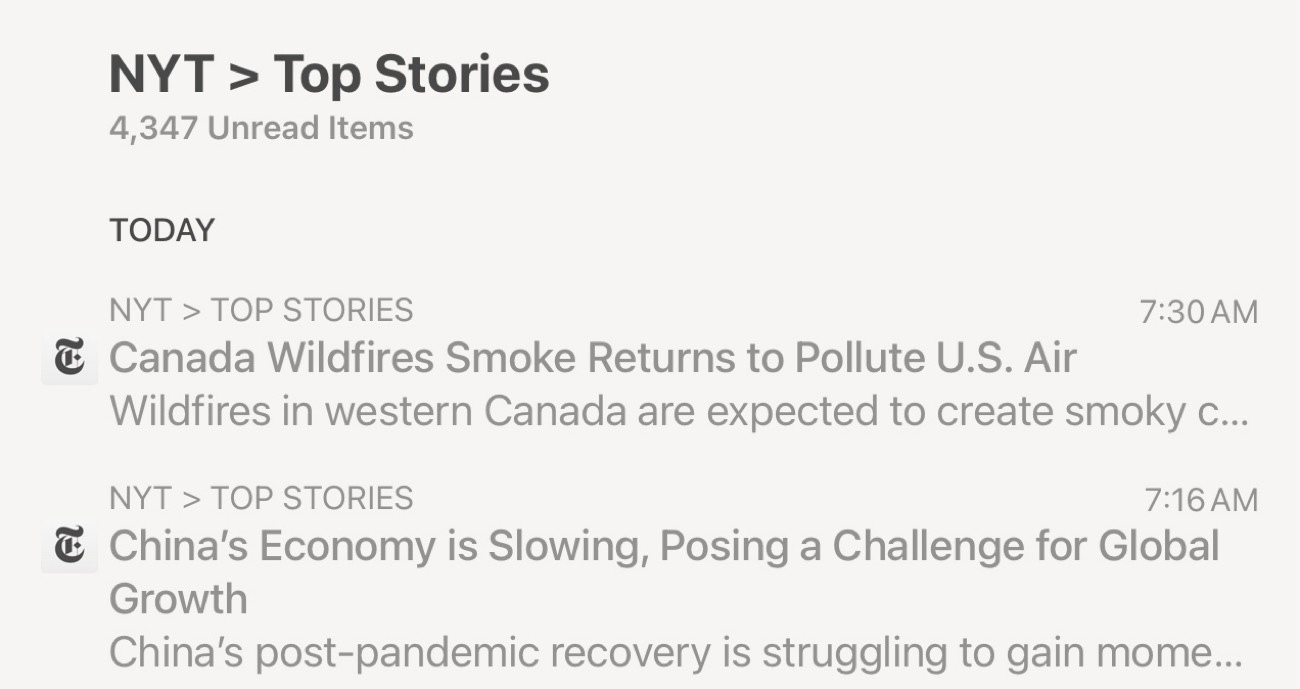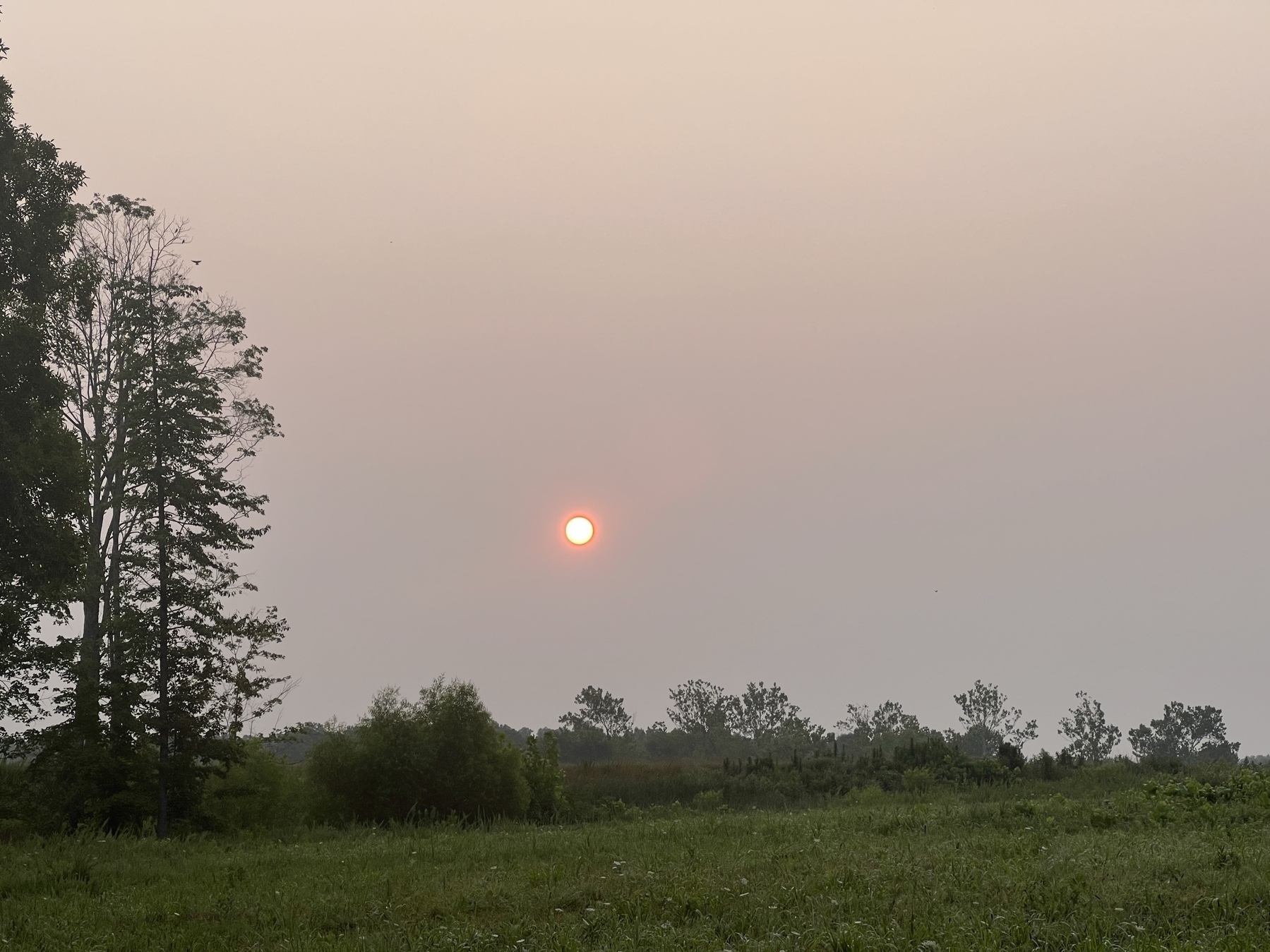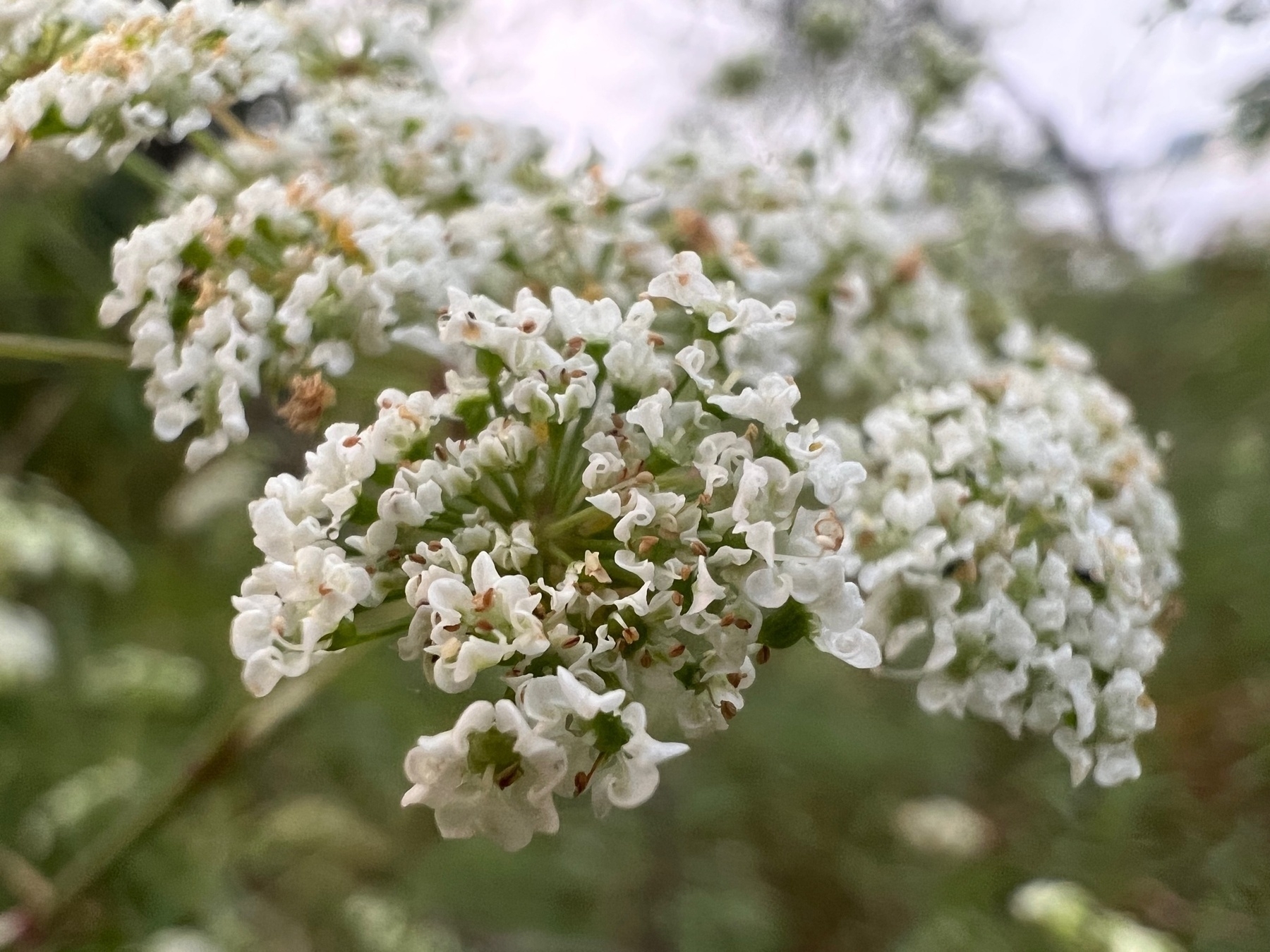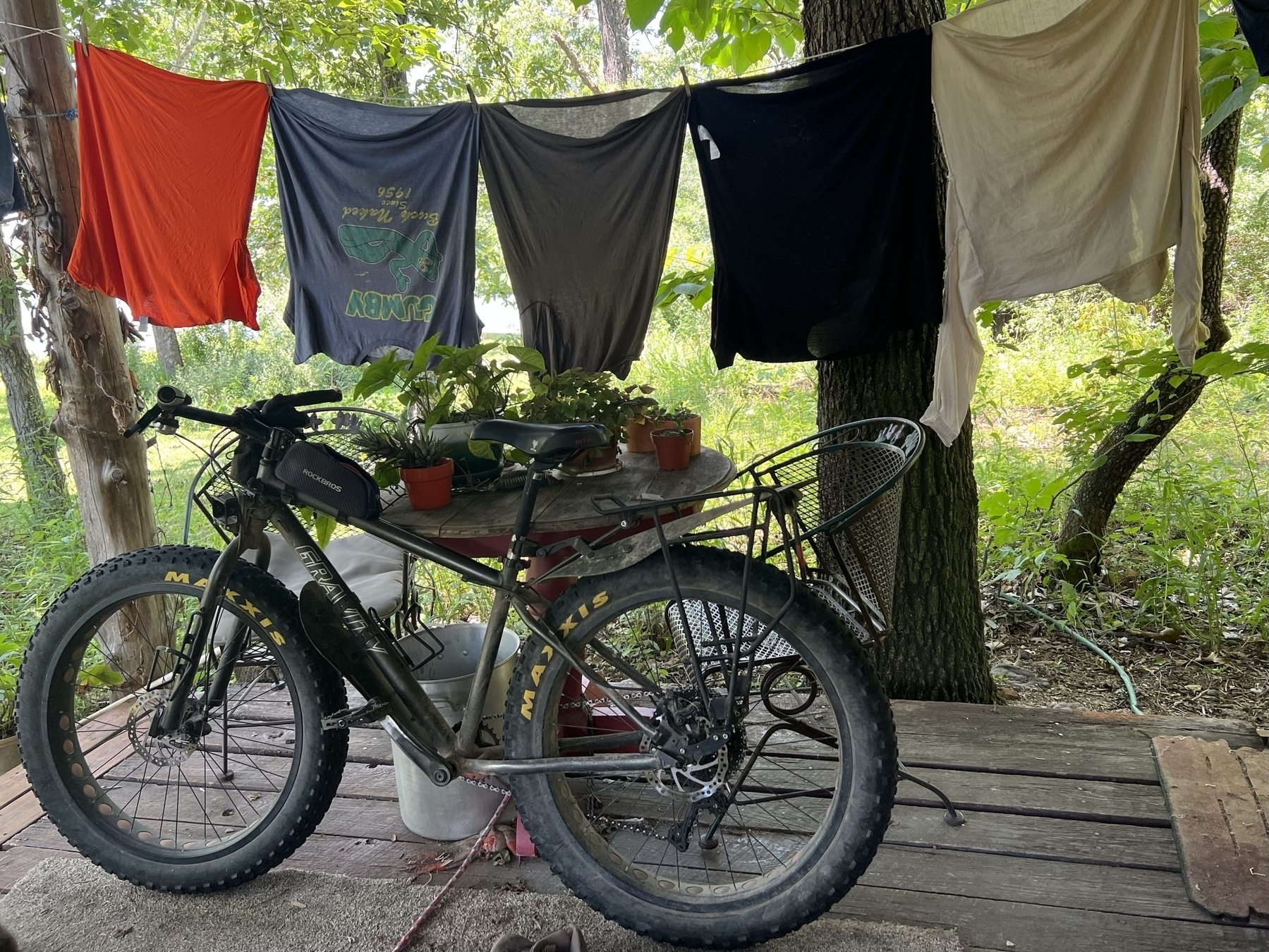Climate Emergency
I had a conversation with a family member over the weekend and my not too suprising takeaway: the wealthiest top 10% are great at personal accounting when it involves their individual and family finances. They care a great deal about their wealth and their future financial security. But ask them to do similar calculations about their contribution of carbon to the atmosphere and suddenly they’re not capable of math. Their individual efforts no longer matter and concern for the future evaporate.
The focus on personal and family wealth accumulation has taught the 10% to only think of themselves as individuals or in the unit of the nuclear family. The inability to extend outward to the greater math of the collective, of their contribution to the larger collective, really shows in the thinking about climate change.
The disconnect of the 10% is staggering. They are willing to shove off a great deal of pain and suffering in the name of their current lifestyle. What makes them comfortabe and happy today is what matters. The suffering they inflict on the poor of the planet, the other species of the planet, the future life on the planet simply does not figure into their concern or calculation.
See the problem here?
Capitalism and its insistence on perpetual growth is not, and will never be, compatible with solving the climate crisis. Nor is it concerned with human or ecological health in general.
From the morning walk. The smoke from the Canadian wildfires has made its way down to mid Missouri, a bit hazy this morning, but a pretty sunrise.
Spotted water hemlock, Cicuta maculata, highly poisonous.
Nate Hagens, the director of the Institute for the Study of Energy & Our Future, ran the numbers: “One barrel of oil has the same amount of energy of up to 25,000 hours of hard human labor, which is 12.5 years of work. At $20 per hour, this is $500,000 of labor per barrel.” A barrel of oil costs about seventy dollars at this week’s market price.
What do our lives and our world look like without fossil fuels? For example, imagine the full process and energy that goes into the flour used in a simple loaf of bread.
To Save the Planet, Should We Really Be Moving Slower? | The New Yorker
A neighbor is driving to Florida for a vacation and offered me a couple of things she would otherwise throw away, the yogurt in the image. Contrast that waste with the bag behind it which contains the totality of my waste for 3 weeks.
Waste reduction is not an option for future life on our planet.
Early days of the climate emergency:
Northern India has been experiencing severe rains which have caused deadly flash floods and landslides, killing at least 22 people. On Sunday, Delhi had its wettest day in more than four decades…
In the US, intense rain and flash flooding left at least one person dead in southeastern New York.
While heavy rainfall events will always happen, scientists say that climate change means they are becoming more severe.
Japan: Floods and mudslides kill six as scientists warn extreme rainfall events will get worse | CNN
Climate disasters, fueled by large-scale, human-driven changes in the global climate, are becoming more frequent. In the past few weeks in Vermont, we’ve had wildfire smoke from Canada forcing people to stay inside, a heat wave, and now this flooding. And Vermont is a place that is supposedly safer for climate refugees to go. But that’s the thing about a global climate crisis: it’s going to affect absolutely everyone absolutely everywhere.
This is just the very beginning, the first days of the long climate emergency that won’t have an end in our lifetimes.
Low-tech, low cost climate solutions that are easy to implement. Admittedly, a bike has some cost and upkeep. Still though, fairly inexpensive. Side benefit: exercise.
The laundry line and clothespins are about $5 and easy to do outside or even inside. No cost to operate or maintain.
This week unprecedented temperatures driven by climate change shattered heat records around the world. “We can’t stop global warming at this point. All we can do is try to stop it short of the place where it cuts civilizations off at the knees.”
“This is the last of these moments we’re going to have when the world is summoned to action by events and when there’s still time to make at least some difference in the question of how hot it ultimately gets.”
Bill McKibben: Climate Crisis Needs Urgent Action as Earth Records Hottest Temps Ever - YouTube
Sunday morning reflection on our moment in the cosmos
On a clear night, we are blessed with a wonderful view of a star filled sky. Tonight, just before turning in, I stopped to stair up at the glittering patterns above me, and the vastness of heavens that our tiny planet sits in. I find something quite calming and humbling viewing that site.
It really is calming and humbling. We’re so, so tiny in the vastness of it all. With just our eyes we can only see perhaps 6,000 stars in our night sky. But our galaxy contains billions! And then to consider the vast space between each star, that the photons from those distant stars have traveled for thousands of years only to end their journey when they strike the eye of a tiny little mammal on a tiny little planet.
The more I’ve learned of the cosmos the more insignificant I’ve felt within it. But in a good way. To feel in size and temporality like a rain drop in a brief moment falling to the Earth. And the Earth, in the cosmos, just one planet around one star amonst 200 billion other stars in our galaxy alone. And to think there are 200 billion other galaxies? We are infinitesimal. Insignificant and yet significant.
Several years ago I was in the habit a spending lot of time with a telescope looking at stars, nebulae, galaxies and our nearby planetary neighbors. It was a kind of meditation on the above, trying to understand, or, to just begin to grasp, the reality of our existence in the vastness of time and space. Those long nights in the dark, looking up at stars thousands of light years away and the faint galaxies that were millions of light years away, letting my mind imagine the many possible worlds that might exist. To consider the possibility of other life forms, some possibly intelligent also looking up into the vastness of space just as I was, brought a strange mix of emotions. My mind would slowly vacillate from a kind of deep peace and sense of belonging even as I felt and acknowledged the indifference of the cosmos. That my life was the single momentary flicker of a summertime firefly and so too is that of humanity, just a moment. Night after night I both rested and grappled with these thoughts and the realizations that drifted from them.
We humans have only existed on this planet for 300,000 years (in our “modern form”). Just a blink of an eye in Earth history and even less in the history of the cosmos. For most of our existence it might have been difficult for a off-world visitor to even know humans were here. We fit into our landscape quietly. Just thousands slowly growing into millions. And then of course things changed. Our industrial civilization with its various conflicts and social forms has only a few hundred years. For all of our intelligence, we’re not very good at living our lives in the larger context. For the most part we’re not able to hold in our minds and daily lives a reverence for our moment in this larger continuum. As animals we react to what’s in front of us right now. It would seem our brains, in terms of evolutionary biology, are tuned to exist only in the moment as it exists in the much smaller context of our lived time and space. It makes sense for short term survival.
And yet, that moment-to-moment instinct to survive works against us. In some ways, not all that different from a bird or a squirrel, we focus on the immediacy of our days. The human dramas that play out in front of us in our homes, schools, and neighborhoods. And not content with those physical, “in real life” connections, we’ve created ways to interact via small glass screens with people all around our planet. Connecting but not connecting. War and conflict continue despite our increased ability to communicate. Planetary-scale problems, most notably climate change, deepen into crisis as we fail to grasp the imbalance we’ve imposed upon the delicate and fragile biosphere.
And so here we are. Tiny and alone on a planet that has, over 4.5 billion years evolved an incredibly diverse life support system. As a species we have simultaneously come to understand the complexity of our biosphere even as we’ve increased our exploitation of it. And so it is that with more than 8 billion of us, we are slowly coming to grasp the full scope of our crises. We have pushed our life support system to the edge. And yet, as I type these words, just outside my window everything seems normal. I hear a variety of birds going abut their lives, singing to one another in the forest. My impression at this moment is that everything is okay. There is no obvious crisis to be seen in my world in this moment. It would be easy to say that this planet is resilient, that it has been here for a long time and will go on.
And you know what? It will. It will. But we have changed it. Our planet is now caught up in a process from which there is no turning back. We are in it. My morning thoughts are of both the special significance of life on our planet, of the long evolution our complex biosphere but also of our place in the universe. Whatever happens on our planet in the next few months and years, whether we rise to the challenge of changing course, the planet will be here in a hundred years. A thousand years. Despite the havoc we have unleashed, life here will evolve to adapt. Much will be lost. In this tiny, tiny corner of the galaxy a species of animal that called itself Homo sapiens lived for a short time. To some degree came to know itself and its place in the larger cosmos. And then it flickered out. By its own hand or some other larger, cosmic event.
I struggle daily trying to come to terms with what we’ve done. But when I look up into the vastness of the night sky, at the thousands of nearby stars or the distant galaxies millions of light years away, I settle into a kind of understanding, an acknowledgment of the moment. As many others have said, we are made of star stuff and we’ll return to that one way or another. The universe doesn’t care. Whatever happens here, today, our planet will continue to spin on its axis as it revolves around the sun which will continue its journey around the galaxy. Our sun and solar system take 200+ million years to make one full orbit around the galactic center. For perspective, the last time our sun was in this place in its orbit the dinosaurs roamed the planet. They lasted millions of years.
I’m not sure how long humans last but this is our moment.
June 2023 may be remembered as the start of a big change in the climate system, with many key global indicators flashing red warning lights amid signs that some systems are tipping toward a new state from which they may not recover.
“These extraordinary extremes could be an early warning of tipping points towards different weather or sea ice or fire regimes… We call it ‘flickering’ when a complex system starts to briefly sample a new regime before tipping into it. Let’s hope I’m wrong on that.”
June extremes suggest parts of climate system are reaching tipping points | Ars Technica
What’s difficult about living through history is you often don’t know the magnitude of it all until it’s over. But at this rate, things being “over” might mean us not being around to look back at it at all.
In this particular case of living through history, Earth just logged the hottest global temperature ever recorded three days in a row—and perhaps the hottest it’s been in some 125,000 years. The earliest known human use of symbols dates to around the same time.
You Just Lived Through the Three Hottest Days on Earth—And More Is Coming | The New Republic
A question for the people who have children and who say that they love their children, how is it that you spend so much of your time talking and being frustrated about subjects like technology, and so little time expressing concern and frustration about the fact that our world is burning and we’re doing nothing to stop it?
A growing number of people believe that humanity is doomed because of climate change, while some are even full-blown preparing for a world post-collapse. Like Ben Green, who calls himself a “happy doomer”. Join me as I visit the old army barracks he calls home, to figure out if he’s right to be preparing for such an eventuality.
A brief but good start to a much larger conversation that should be front and center everyday. Ignoring the crisis or pretending it will be magically solved is not an answer.
If the world is to keep climate change at manageable levels before the middle of the century, changes in lifestyles are not only inevitable, but would need to be radical, and start immediately. Considering current consumption levels, citizens in many developed countries would have to cut their lifestyle carbon footprints by about 80-90% or more…
I’m an advocate of making such cuts. Individuals, families, communities, we are millions and our collective actions add up. This is an emergency. This is urgent. We must act today and together.
Climate scientist Johan Rockström explains the urgency of operating within “planetary boundaries“ - the planetary life-support systems essential for maintaining human life on Earth. By following the recommendations of science, Rockström believes we can avert an ecological and climate collapse and create a healthier, more prosperous future. But we have to act decisively now - or we will completely fail.
A True Paradise: AN EXISTENTIAL THREAT - Johan Rockström - YouTube
We are heading towards 3 to 4°C of warming across this century, an absolute climate catastrophe… And all we are doing so far is giving rhetoric and optimism and greenwash. … It is a choice to fail, and it’s a choice to succeed. If we sit back and wait for the great and good to deliver this change, then we will fail. It comes down to all of us to play our role as best as we can… Hope arises from civility society.
Essential viewing.
A True Paradise: WHERE WE ARE HEADING - Kevin Anderson - YouTube
No dog walk today. The upside: The more degraded our lives get today the more seriously we’ll take the problem. We should stop pretending that the climate emergencey is a far off future problem. It’s here today.
First, the record Canadian wildfire season exposed residents of the biggest cities in the Northeast and mid-Atlantic to hazardous air quality. Now low-level smoke is taking aim at the Midwest and Ohio Valley.
Canada wildfires break records and darken skies in the Midwest
Half of the world’s 10,000-odd bird species are in decline. One in eight faces the threat of extinction. This problem has been worsening for decades, which means scientists have been able to estimate roughly how many fewer birds are around today than, say, half a century ago. The numbers are startling.
Around the world, rainforests are becoming savanna or farmland, savanna is drying out and turning into desert, and icy tundra is thawing. Indeed, scientific studies have now recorded “regime shifts” like these in more than 20 different types of ecosystem where tipping points have been passed. Around the world, more than 20% of ecosystems are in danger of shifting or collapsing into something different.
Ecological doom-loops: Why ecosystem collapses may occur much sooner than expected




